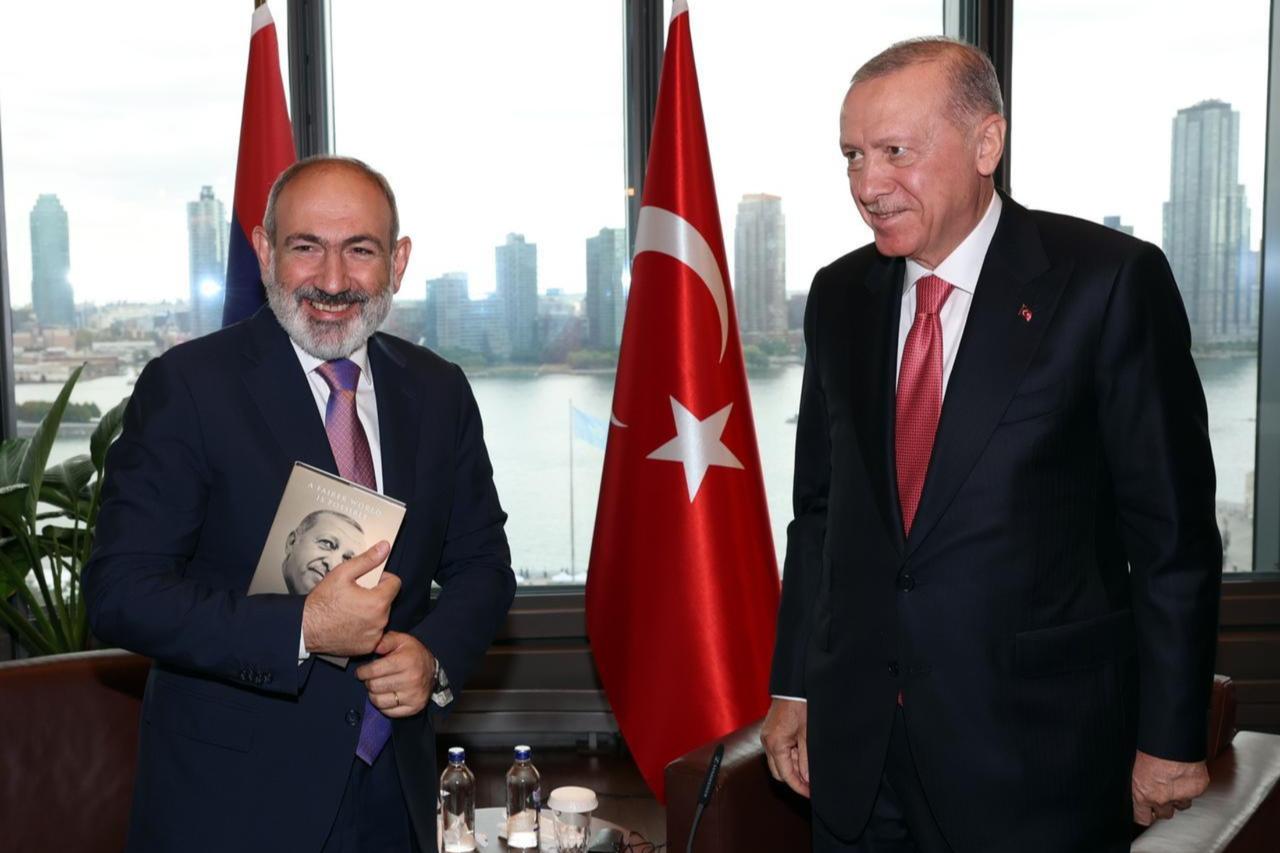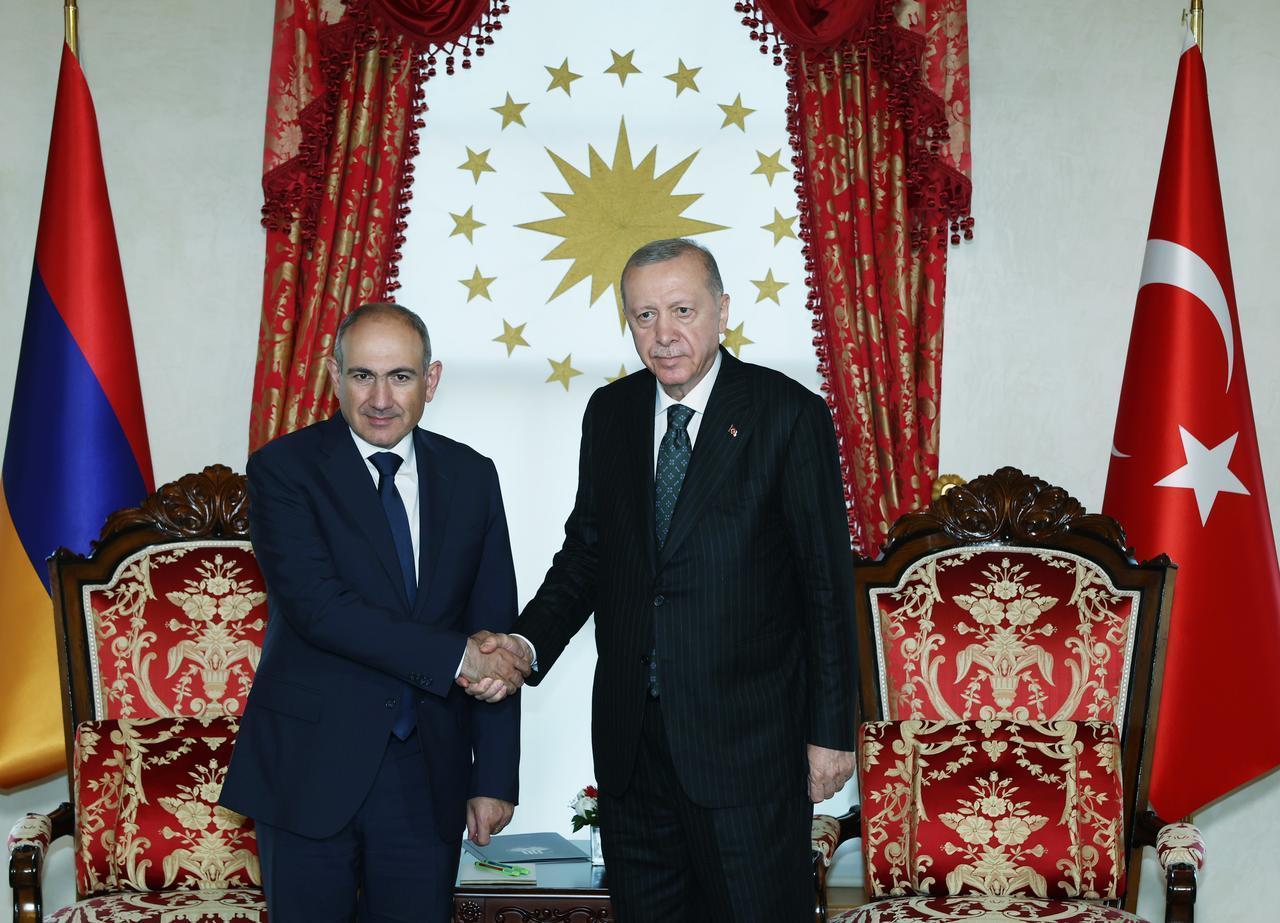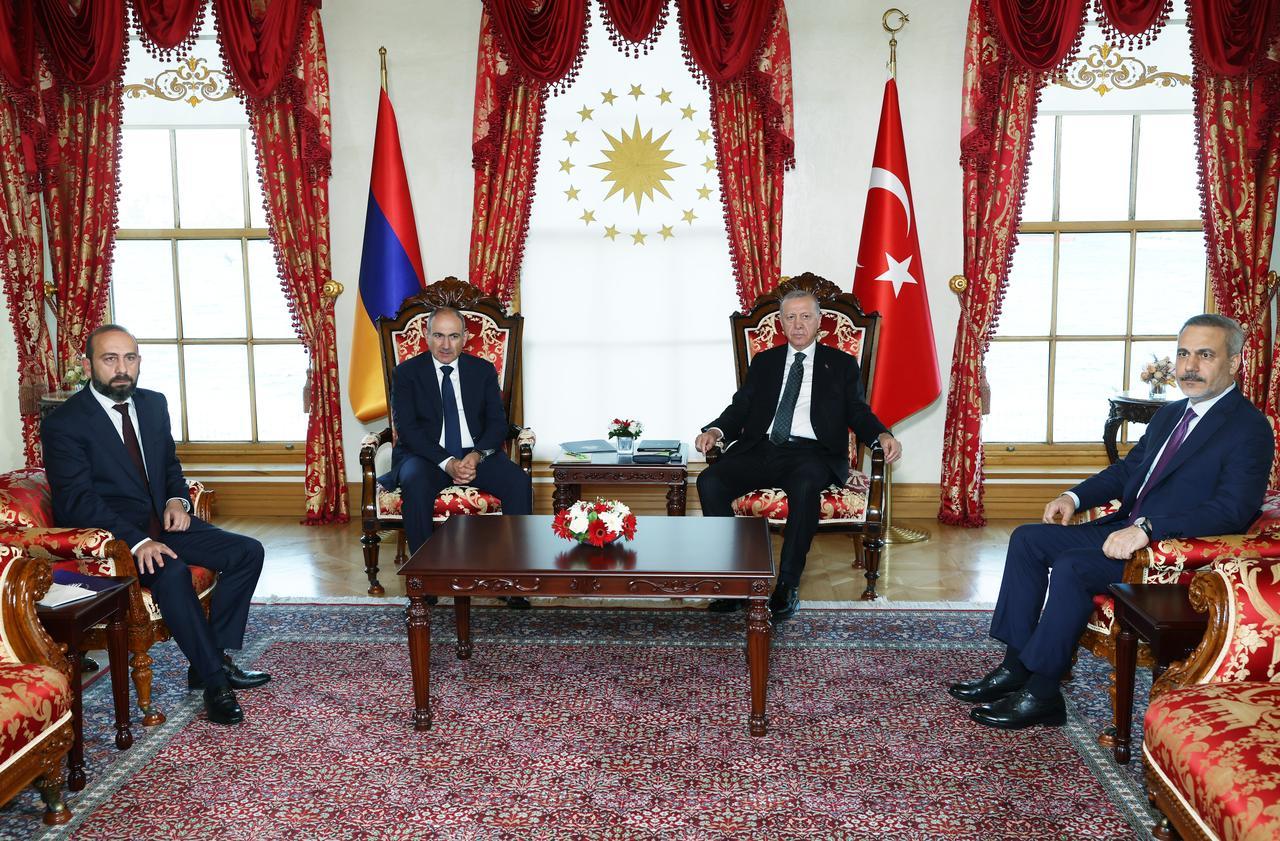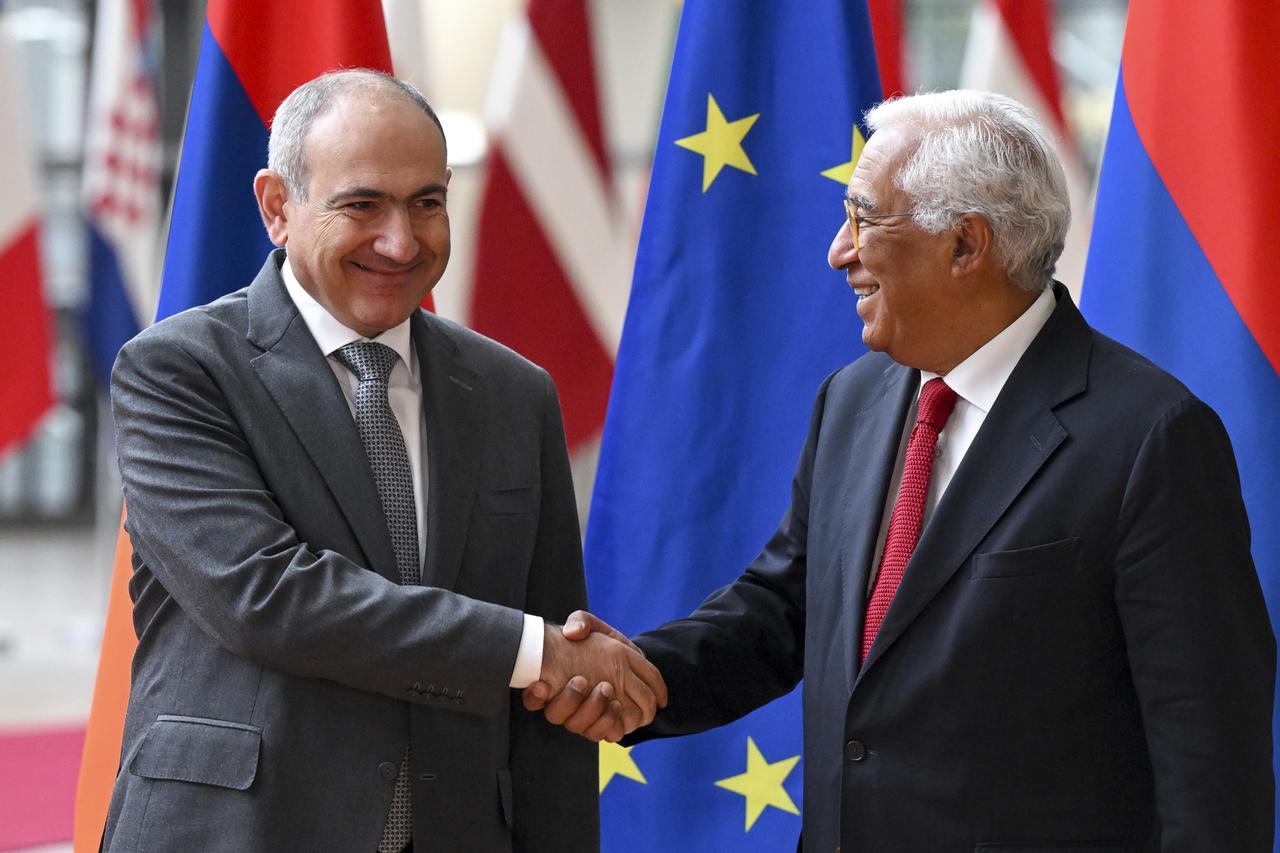
Armenian Prime Minister Nikol Pashinyan said Wednesday that diplomatic relations with Türkiye will be established and the long-closed border will be reopened.
Speaking at a press conference, Pashinyan described recent talks in Türkiye as “open and sincere,” emphasizing that the agenda focused on state-to-state ties rather than solely Armenian-Turkish normalization.
“All issues were discussed — from the opening of communications to the restoration of the historical Ani bridge,” he said, referring to his recent meeting with Turkish President Recep Tayyip Erdogan.

Cited by state-run Armenpress, Pashinyan acknowledged no concrete steps, such as immediately opening the land border, were agreed upon but stressed the need for a long-term approach.
“Such complex and deep issues cannot be resolved with a single action. We need to build trust and prepare the public. But I have no doubt that we will reach that point: diplomatic relations will be established, and the border will be opened,” he said.
Pashinyan linked normalization with Türkiye to a broader national strategy aimed at preserving Armenia’s independence, sovereignty, and statehood..
During the same event, Pashinyan said Armenia is more likely to withdraw from the Russia-led Collective Security Treaty Organization (CTSO) than resume participation.
“We froze our participation due to the CSTO’s failure to fulfill its obligations to Armenia,” he said, referencing his February announcement. Since then, Armenia has avoided CSTO events and withheld membership fees.

Pashinyan also addressed a U.S. proposal to place the disputed Zangezur corridor under American supervision.
“All offers are evaluated within the framework of Armenia’s sovereignty, territorial integrity and jurisdiction. No matter the term — whether outsourcing, leasing or investment — the process must respect these principles,” he said.
He noted that similar models exist at Zvartnots Airport and in the railway sector without undermining state ownership or sovereignty.
Pashinyan added that a new company may be formed to attract investment for regional connectivity projects, including roads, railways, pipelines, energy lines, and communication cables.
On domestic issues, Pashinyan addressed tensions with the Armenian Apostolic Church.
“The Church is sacred to me. Everything we do is for the Church. But we couldn’t ignore how it harms itself through its own actions. We will save the Church just as we saved Armenia from Serzh Sargsyan,” he said.
Separately in Brussels, Pashinyan confirmed Armenia’s official intention to join the European Union.
“Yes, Armenia wants to become a member of the European Union,” he told European officials.

He added that Armenia will continue aligning with European standards through reforms regardless of the membership outcome.
“We have an ambitious reform strategy, and we will implement it in any case,” he said, reaffirming commitment to the Armenia-EU Comprehensive and Enhanced Partnership Agreement.
Armenia froze its CSTO participation earlier this year and has since strengthened ties with the EU, signaling a shift away from Moscow’s influence toward closer integration with the West.